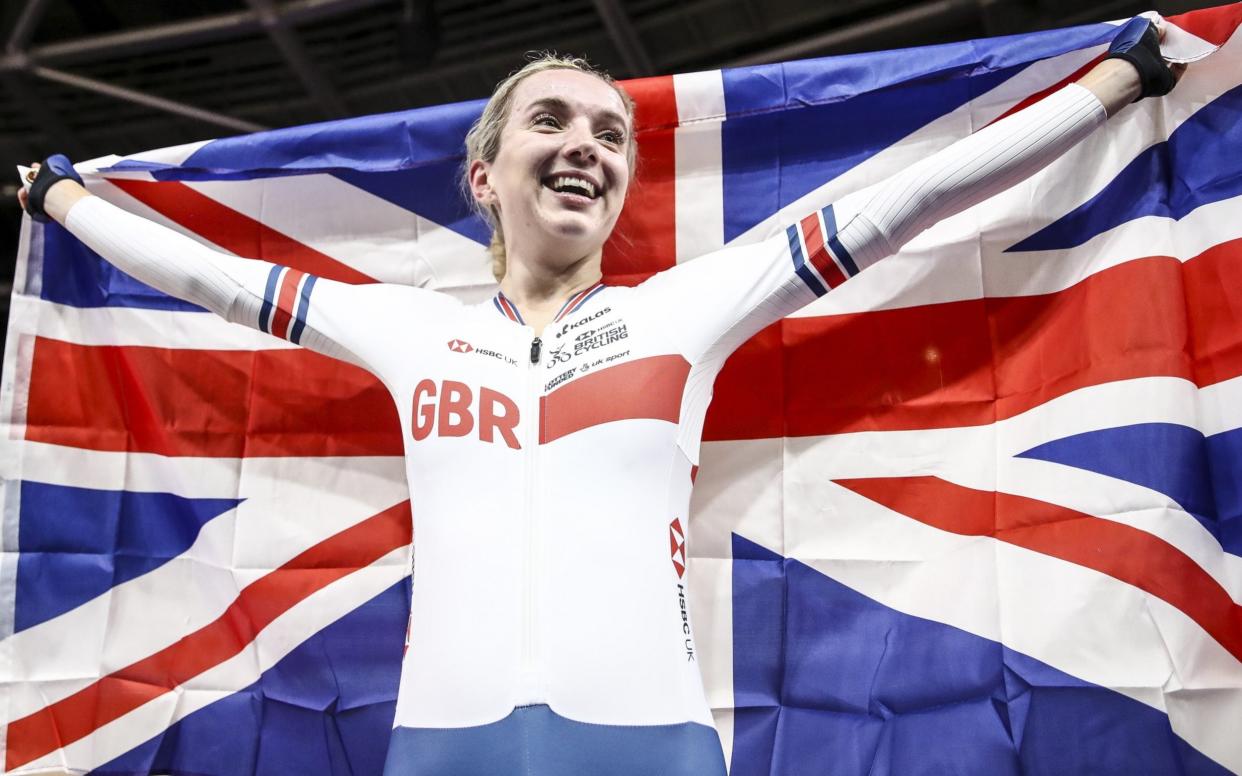Elinor Barker criticises proposals to weigh children when schools return

Elinor Barker, the British Olympic track cycling champion, has slammed proposals to weigh children when they return to school in September to check if they have lost ‘lockdown weight’.
Last month, the National Obesity Forum called for children to be weighed in school when they return to the classroom in a bid to tackle obesity among pupils after the lockdown.
The charity’s chairman, Tam Fry, suggested some children will struggle to fit into their school uniforms due to months of snacking and doing little or no exercise in recent months.
The issue, which was discussed on Monday’s episode of Channel 5's The Jeremy Vine Show, drew criticism from viewers, who labelled the idea as ‘disgusting’ and ‘damaging’ while others suggested the idea could lead to eating disorders among children.
The debate prompted Cardiff-born Barker, who won gold at the 2016 Rio Olympics in the team pursuit, to hit out at the idea on social media, citing her own experience as an elite athlete to show that “lighter is not always better”.
Instead of shaming kids for being heavy, why not look at *why* that is happening? A healthy diet is an expensive luxury that not everybody can afford. A small punnet of blueberries is £3. A multipack of crisps is pennies.
— Elinor Barker (@elinorbarker) August 10, 2020
“I feel like I could add 50 more tweets to this thread but all I’ll add is: lighter is not always better. I was the heaviest I’ve ever been when I won the Olympics, at my lightest I could barely get through a training week. Education > a number on a scale.”
Barker is the latest high-profile British sportswoman to speak out about weight shaming. In the wake of the abuse scandal to have engulfed British Gymnastics, Ellie Downie said she had been weight-shamed for almost her entire career and that she and her sister, Becky, regularly hid food “for fear of it being found.”
And earlier this month, Rachel Morris, the British Paralympic rowing and handcycling champion, vocally criticised text on a water bottle designed by cycling brand Rapha which alluded to training tactics allegedly employed by Marco Pantani, the late Italian road cyclist.
The text read: “To achieve race weight, Marco Pantani would, according to legend, ride for six hours on nothing more than water, returning home to just a slice of watermelon.”
Morris, who has suffered from an eating disorder and bulimia, called the message “irresponsible”.

